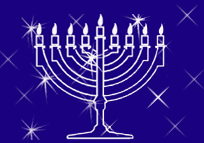|

Groups I worked with
First quarter I focused on freshmen, Greeks, and students in Dorms. I made slow progress with the freshmen and the kids in the Dorms and no progress with the Greeks. I met with Carl Johnson, who is staff for all Greek programming, with the Interfraternity Council, the Panhellenic Council, and with student leaders from Delta Delta Delta, Gamma Phi Beta, and Sigma Chi with no results. I tried to start a Jewish Greek council with a Jewish Student from Sigma Chi, two meeting were held and then it fell apart. For the freshmen and the Dorm kids I had several successful programs. Starting second quarter I dropped Greeks and a target group and added Grad Students after I found out that DU has more grad students than undergrad students. I have had a lot of success with the grad students.
Key Leaders and Follow Up
There are several key student leaders and potential leaders coming back to campus in 2003-2004. Soph Male Russian Student does a lot of the Israel programming; he will be abroad first quarter but on campus in the winter and spring. Freshman Girl #1 was a freshman this year and will be back next year. By the end of the year she was coming to most of the big events. Find a way to get her more involved. Freshman Girl #2's first involvement with Hillel was with the Hillelathon and after that she came to several events. She is very energetic. Freshman Boy #1 did a documentary film on the kind of Jewish student that DU attracts. He was not involved with Hillel this year but comes from a strong youth group background. Soph Girl #1 is one of the most involved engagement students of the year. She took on Shabbat planning responsibilities at the end of the spring quarter. Grad Girl Theology Student is a very active grad student who comes to most Shabbat dinners, get an official grad group started with her next year. Grad Girl Social Work Student is also a very active grad student, and she and another grad student are the building blocks of a grad group. Freshman Boy #2 came to one engagement program and got hooked, coming to Passover and Shabbat programs. Make sure to get his help with out-door/ sports programs. Soph Girl #2 wanted to be active but could never quite find the time, help her get reconnected. Freshman Girl #3 came to an engagement program and then two more events, she is on the Clarion staff and writes up our events in the newspaper.
|
|
I had many different strategies for success, the most important being building meaningful relationships with the individual students. This is by far the most critical component of success. I had to be invested in my students; in their lives. I had to know what each persons goals were, what they did for fun, what they studied, what their family background was. Until I knew my students I was not able to give them what they wanted. This job is about the students, helping them grow into wonderful people and helping them explore their Judaism. KNOW THE STUDENTS! The second strategy was to experiment and try new things. If something worked I evaluated to figure out why it worked and if something did not worked I evaluated to learn what I could do better next time. The third strategy is constant evaluation, both self and with others. Ask the students what they liked and didn't like, ask them what they would do differently if it were their event to run. The fourth strategy was to be on campus as much as possible, for coffees, for lunches, for tabling, or just so students could run into me and hang out for ten minutes. Some of the best conversations with students happened when we just ran into each other. Specifics on the "to do" list: have three individual coffees or lunches with students a week, do programs in the dorms, do programs in campus buildings, do programs outside on the campus lawns, get engagement students involved in planning a specific program that they are interested in, be extremely flexible and meet students where and when they want, and listen to what students say.
Goals for the Future
My goals throughout the year were very ambitious, perhaps too ambitious, and I had to readjust my idea of what were realistic goals. I wanted to have a cohesive freshmen group, I ended up creating strong individual relationships with many freshmen and introducing them to each other and letting them build their own friendships. I hoped to create a strong Jewish Greek Council, but ended up planting the seed for a Jewish Greek group to emerge in a year or two while building a couple of strong relationships with Jewish Greeks. I wanted to do lots of programming in the dorms, but found that the Res Life system was difficult to work with. My goals then shifted away from those more tangible results to more intangible. The goals for the second half of the school year were: to make myself known both by face and name on the campus, to get students to want to just hang out and talk with me, to get students thinking about how Judaism fit into their own lives, to give Jewish students a link to each other and to the Hillel, to be someone that students could trust and turn to for advice, to be more like myself, to have fun, to help others have fun, and to focus on the quality of my programs and relationships rather than the quantity. Goals for the future of this campus include: helping the freshmen transition into college life, effectively engaging upperclassmen who previously were not connecting Jewishly, working closely with Judaic Studies, continuing to work closely with ISIME, build a relationship with the Graduate School of Social Work, build a stronger relationship with the Greek system that leads to new programming, do more out door programming-make use of the natural beauty of Colorado.
Jewish Encounter in Programs
This is the point of what I do; brining the Judaism to the people, and it looks completely different with every student and with every program. The Jewish encounter can be a group of Jewish people, eating Ben and Jerry's and watching "Friends". We don't have to talk about religion or Israel, just creating a fun "Jewish space" is a Jewish encounter. The easiest way to bring the Jewishness into a program is through culture, be it food, entertainment, or a few random Yiddish words. Especially when youre starting to build a new relationship you don't want to shove the Judaism down a students throat. Most of this I just had to feel out for myself and learn along the way. The stronger your relationships with students become, and the more you know what your students are interested in and potentially receptive to, the more Jewish content you can incorporate into what you do. I had a student, a senior girl, and the first three coffees we had there was little to no talk about Judaism. This student and I know talk about the differences between movements, about Israel, and she comes to religious events because she is interested in looking at them again. Just two Jews spending half an hour together is a Jewish encounter and the possibilities of where that type of encounter will lead are endless. But Jewish encounter is also going rock climbing and doing a text study with a rabbi. Make it fun, make it fresh, and make it interesting. Jewish encounter does not have to look like a youth group activity; it just has to bring some aspect of Judaism out in the students. Mel Brooks is Jewish humor, so why not eat Falafel and watch "Space Balls", that's a very Jewish two hours.
Tracking- Following up on Students
Tracking the students and following up with them is critical to building relationships and designing programs to meet their needs. Especially in the beginning of a relationship with a student I write down every time I called them or they called me and saved all of the email that went back and fourth between the two of us. When I first meet a student I try to get as much of their contact information as I can. I also write down critical things I learned about them in the first conversations. I have a box in my office that has a card for every student. The card has their contact information, random facts about them, and notes about our coffees and phone and e-mail correspondence. Updating these cards, both with new information and by adding cards for new students is an ongoing process throughout the year. Most of my students I found on my own, there had been no previous Fellow on my campus. Next year some contact information like address and phone number for the students will be different, but their DU email address will be the same.
|



